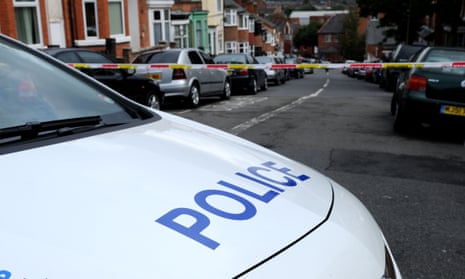The police are failing the victims of “honour” crimes, with just 5% of reported cases being referred to the Crown Prosecution Service, a leading charity has warned.
The number of cases of “honour” based violence, forced marriage and FGM reported to the police has increased by 53% since 2014, figures obtained through the Freedom of Information Act show.
However, despite the rise in reporting, the volume of cases referred to the CPS for a charging decision is the lowest it has been for five years.
“More victims of ‘honour’ based violence are coming forward to the police than ever before but worryingly the evidence suggests those seeking justice are being failed by the system,” said Diana Nammi, the executive director of the Iranian and Kurdish Women’s Rights Organisation.
The number of “honour” crimes reported to the police increased from 3,335 in 2014 to 5,595 in 2015 – a rise of 68%, according to data collected by the charity from every police force in the country. The number of reports dropped slightly to 5,105 in 2016.
However, the latest figures published by the CPS show only 256 “honour” crimes were referred to the organisation by police in 2016/17 – just 5% of the cases reported over a similar period. The 256 referrals resulted in 215 prosecutions and a subsequent 122 convictions.
Nammi said: “Of the large numbers reporting these crimes, very few cases are referred to the CPS and ultimately we are not seeing enough prosecutions. Our findings show the low prosecution rate cannot be blamed on the incorrect assumption that victims are not coming forward.
“Some of these cases can be hard to prosecute but with a record number of victims reporting, it is imperative the justice system is fit to respond and, where necessary, perpetrators are held to account.”
The increase in reporting follows the criminalisation of forced marriage in June 2014, which has led to an improved awareness of “honour” crimes, but only one prosecution under the legislation.
A report on the police response to these crimes, which disproportionately affect women from ethnic minorities, was published in December 2015 by Her Majesty’s Inspectorate of Constabulary.
The police watchdog concluded only three of 43 police forces in England and Wales were adequately prepared in all areas to respond to the needs of victims and take a case through to prosecution.
The report laid out 14 recommendations to be put in place by the end of 2016, yet some remain outstanding.
The HM inspector of constabulary, Wendy Williams, said: “We made a series of recommendations to the Home Office, the National Police Chiefs Council, chief constables and the College of Policing all of which were aimed at improving practice in relation to these extremely vulnerable victims.
“We are reviewing the data on recorded crimes and prosecutions and will use this in deciding what follow-up activity we might carry out in 2018/19.”
She added: “In future we shall be asking forces to submit information to us which provides details of how they are assessing current and future demands for their service in this area.”
The National Police Chiefs Council lead for “honour” based violence, Commander Ivan Balhatchet, told the Guardian: “‘Honour’ based abuse is a complex crime which often happens within community or family networks that many victims find it very difficult to speak out against and can face further threats, violence or isolation if they do.
“In all cases our priority is to safeguard vulnerable victims from this appalling form of abuse so we work to put protection orders in place as soon as possible even where a conviction is not possible.”
His comments followed the news last week that a man was to be charged for FGM, following an investigation by the Metropolitan police. If the prosecution is successful it would mean the first British conviction for FGM since the practice was outlawed in 1985.
Insp Allen Davis who leads Project Azure, the Met’s response to FGM, said: “These are hidden crimes and police data is never going to reflect the true scale of the problem. The data is really useful for shining a light on this complex area but it needs to be taken in context.
“For example, with FGM, we get a lot of reports where a child may be at risk but it doesn’t necessarily mean a crime has occurred. It will be counted as a police report but the response may involve obtaining a protection order.”
He added: “The police are absolutely taking these crimes seriously and we would like to see more referrals and prosecutions but often there are other safeguarding outcomes that don’t involve a conviction.”
Women’s charities say a victim of “honour” abuse is much more likely to see a case through to prosecution when supported by the third sector. However, cuts to legal aid and support services within BAME communities have left many women without recourse to justice.
The National College of Policing said it has published guidance for forces around “honour” crimes and is in ongoing discussions about reviewing risk assessments for forced marriage, FGM and “honour” based violence.
Earlier this year the home secretary, Amber Rudd, announced more than 40 projects to share a £17m transformation fund as part of the government’s £100m pledge to help tackle violence against women and girls.
